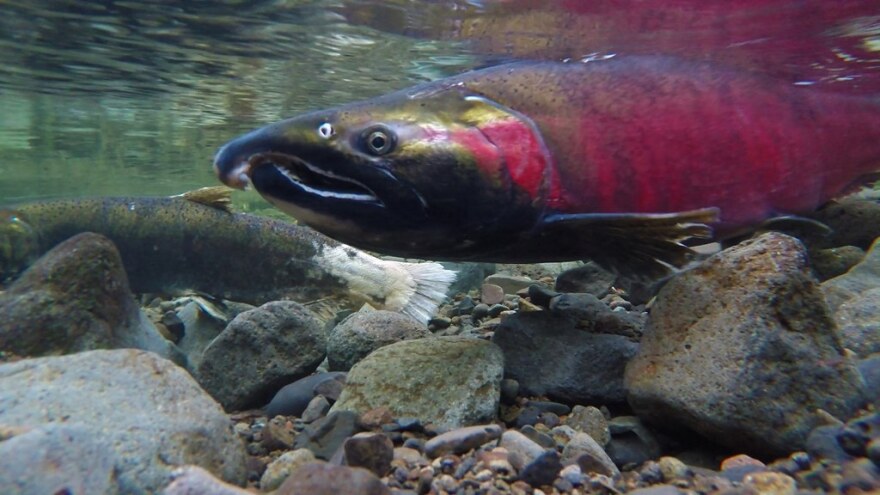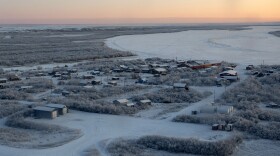Native American tribes – including those in the Pacific Northwest – that are contending with the impacts of climate change can soon apply for $120 million in federal aid.
The Biden Administration says it’s the largest annual funding through its Tribal Climate Resilience Program.
In a Zoom interview today, Assistant Secretary for Indian Affairs Bryan Newland told KLCC that applications will be gathered until mid-October, with plans to distribute money early next year.
“As you know, climate change, the longer we wait to start addressing it by moving to renewable sources of energy and reducing our use of carbon, the more expensive it’s gonna be,” said Newland. “This $120 million is an initial investment. It’s a down payment on the work that we’ve got to do across Indian Country to help protect tribal communities against this growing threat.”
Newland said tribal communities in the Pacific Northwest and Alaska are dealing with coastal erosion. Other tribes are contending with intensifying wildfires, drought, and flooding.
A member of the Bay Mills Band of Ojibwe located in Michigan, Newland said there is increasingly strange weather observed back home, with berries ripening off schedule and the seasons shifting. He also acknowledged concerns over rising water temperatures that affect salmon, a major food source and important icon of Native people across the west.

For tribes interested in receiving aid, Newland said the BIA will host a grant writing workshop on July 26, followed by an educational webinar in early August to explain more on the process. More information can be found at the Climate Resilience Annual Awards Program website.
In a release, the White House said the $120 million includes $23 million from the Bipartisan Infrastructure Law, $72 million from the Inflation Reduction Act, and $25 million from fiscal year 2023 annual appropriations.
“Grants will be available in planning and adaptation categories,” the release continues. “These categories encompass a range of activities affecting every Tribe, such as climate adaptation planning, drought measures, wildland fire mitigation, community-driven relocation, managed retreat, protect-in-place efforts, and ocean and coastal management.”
“Devastating storms, increased drought and rapid sea-level rise disproportionately impact Indigenous communities,” said Interior Secretary Deb Haaland in the release. “Helping these communities remain on their homelands in the midst of these challenges is one of the most important climate related investments we could make in Indian Country.”






